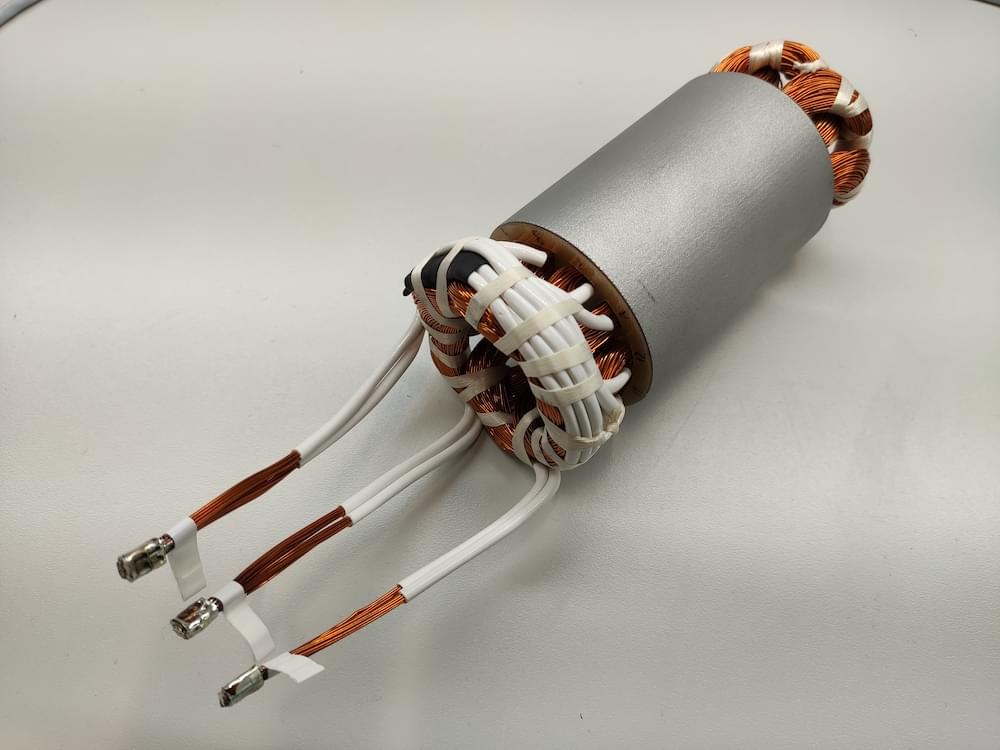The transport sector is transforming towards climate-friendly powertrains with significantly reduced CO 2 emissions. The electrification of powertrains remains a major challenge not only for trucks, buses, trains, and ships but also for aircraft. These applications cannot be realized in the future with batteries because of the energy requirements. The fuel cell is an extremely promising energy supplier for these applications, which supplies electrical energy from stored hydrogen and ambient air.
Fraunhofer Institutes LBF, IFAM, IISB, and SCAI joined their forces to develop advanced and highly efficient components for fuel cells. The project HABICHT aims to design and develop a high-speed motor for a fuel cell compressor to enable innovation in the utility vehicle and aviation domain. The electric machine should at least achieve apower density of 30 kW/kgby using innovative materials for direct cooling of the stator and maximizing the rotor’shigh-speed capability (150.000 rpm). The rotor design will use a new manufacturing process to glue and pot the magnets to be suitable for high circumferential speeds.
Prototype of a high-speed motor for a fuel cell compressor. (Image: Project HABICHT)
